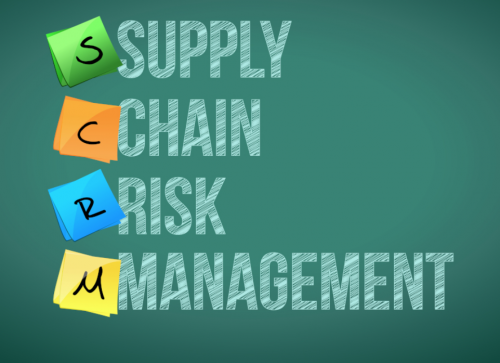A 2024 Guide to Managing AML Supply Chain Risks

The UK facilities management (FM) sector is subject to an array of complex statutory and regulatory requirements that organisations must navigate to ensure compliance and mitigate risks. This is not just a box-ticking exercise, nor should it be viewed as such; it’s a critical component of maintaining the security, integrity, and operational resilience of a facility. From health and safety and fire regulations to data protection, environmental sustainability and worker welfare, the UK FM sector’s regulatory landscape is complex.
One of the most overlooked risks in this sector involves paying inadequate attention to anti-money laundering (AML) regulations, which may not affect many FM organisations directly, but have a potentially greater impact on their supply chains.
Money Laundering in Facilities Management
Facilities managers are responsible for numerous facets of their day-to-day operations, from supply chains, bottlenecks and vendor relationships to real-time asset management and secure online transactions. Many of these facets – or the people tasked with overseeing them – can be susceptible to money laundering, fraud, and other financial crimes unless proper controls are put in place, and rigorous assessments are conducted.
The underlying point is that many AML activities are highly scrutinised and regulated and with good reason. Failing to comply with statutory and industry regulations can result in severe consequences, including hefty fines, reputational damage, and even criminal liability for the organisation and its leadership. One recent example saw the uncovering of egregious payments between the Middle East, Canada and UK construction company Carillion, which was triggered by the company announcing £845 million in profits. The Birmingham-based company had ‘borrowed’ huge amounts of money in less conventional ways and took longer to pay invoices, and the investigation drove shareholders away en masse. The company eventually liquidated under £1.3 billion of debt and the case highlighted the need for greater transparency among facilities operations.
As the world grows increasingly digitised and supply chains become much more geographically dispersed, manufacturers and suppliers need to weigh up their vendor relationships carefully. Not just by looking at the firm’s financial track record and AML transparency, but also those of the country of operation. For FM organisations with operational or supply chain ties to high-risk countries (of which Gibraltar, among other countries, was recently removed), enhanced due diligence and heightened security measures are mandatory. Appropriate risk assessments and monitoring will continue to prove vital in today’s environment of heightened regulatory scrutiny.
Top Risks Facing Facilities Managers in 2024
As we look ahead to a summer of a general election, increased geopolitical turbulence and uncertainty, and where supply chain constraints look set to continue, inflation is set to remain above average market levels. Facilities managers must be prepared to navigate a complex risk landscape, in no uncertain terms.
Below are some of the key challenges that facilities managers can expect to face in the coming months.
-
Supply Chain Vulnerabilities
Globalised supply chains make facilities of buyers, suppliers, and intermediaries exponentially vulnerable to sophisticated financial crimes. Digitisation and automation empower facilities to experience time- and resource-saving benefits like onboarding new vendors quickly and streamlining workflows.
However, sudden disruptions and a lack of visibility into suppliers throughout supply chains can be indicative of risky activities. Facilities managers must review and refine their due diligence and KYC (Know Your Customer) checks to vet suppliers and buyers with confidence while monitoring for suspicious activity where applicable.
-
Fraud and Criminal Activity
FM operations often involve the handling of high-value assets and sensitive information, making them attractive targets for established criminal groups and opportunistic fraudsters. From invoice fraud and embezzlement to money muling and infiltrating commodities in transit, buyers and suppliers must exercise heavy caution, particularly at times when they are not in firm control of goods moving from facility to facility.
Managers must cultivate an environment that embraces robust internal controls and can utilise enterprise-grade fraud detection systems. Employee training and awareness programs are pivotal to helping achieve these goals and upskilling personnel to spot fraudulent activity.
-
Emerging Technologies and Cyber Risks
The increasing reliance on smart building controls, IoT devices and cloud-based systems in FM creates new cyber security vulnerabilities, especially if users are not adequately equipped or trained to manage these tools appropriately. System or network breaches can often be symptomatic of criminal activity, with organised groups targeting vulnerable supply chains to avoid suspicion and disrupt operations.
Facilities managers must ensure that not only are best-in-class cyber security solutions implemented to protect sensitive data from hacks, breaches, and ransomware, but that staff are regularly trained to recognise irregular behaviour at all stages of their – increasingly tech-led – supply chains. If a business is compromised and harrowing connections are discovered – with reports ending up increasingly publicised – the victim will also be liable for AML compliance fines along with other regulatory penalties.
Strategies for Effective AML Supply Chain Risk Management
Money laundering activities can run deep throughout supply chains, to the point where most parties are acutely unaware of any questionable or deplorable criminal behaviour. The fact remains that AML is – and always has been – a collective, collaborative effort among buyers and suppliers, to ensure that supply chains remain safe, resilient and operational.
To effectively manage AML supply chain risks, FM firms should consider reviewing their strategies as a priority.
Be Diligent
Implement a robust due diligence framework that goes beyond the initial onboarding of vendors, suppliers, and staff, while regularly reviewing and updating current risk assessments and policies. By all means, take advantage of and leverage innovative technologies like artificial intelligence (AI) and machine learning (ML), among others to streamline operations and give you greater top-level visibility into on-site activities. These can automate and enhance specific due diligence processes including document forgery detection, adverse media screening, and authorised push payment (APP) fraud.
Understand How Your Partners Work
Develop a comprehensive understanding of all supply chain partners, including their ownership structures and risk profiles. Closely monitor any changes in their activities that may warrant the need for enhanced due diligence or the termination of current agreements, particularly if they are found to put you at increased risk of AML non-compliance. Utilise data-driven KYC and KYB (Know Your Business) solutions to efficiently gather, analyse, and aggregate up-to-date information on all supply chain partners.
Promote an Open Information Policy
Ultimately, however, fostering transparent collaboration with partners – as well as customers and stakeholders – and sharing information on emerging risks can help all parties coordinate mitigation strategies. The more agility and adaptability all parties have throughout the supply chain, the better their resilience will be.








